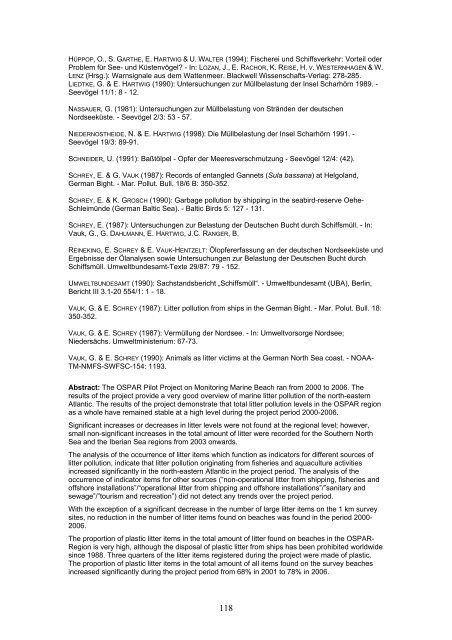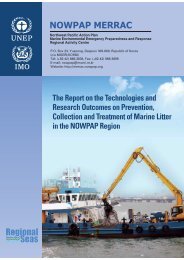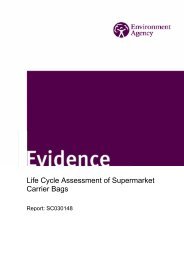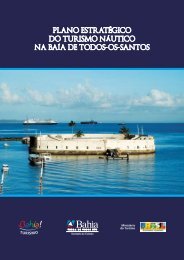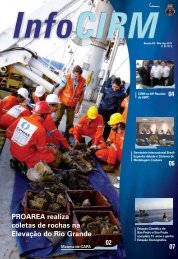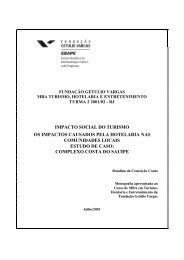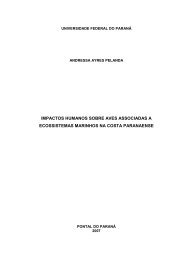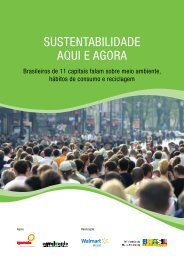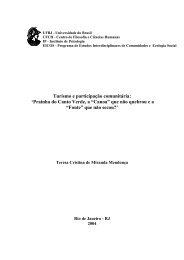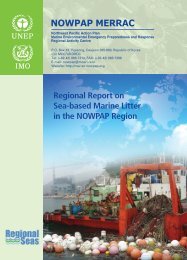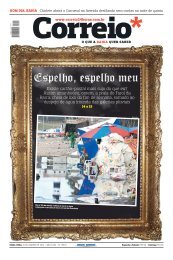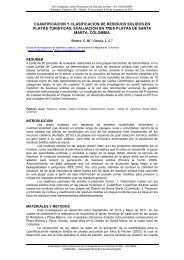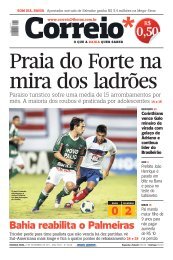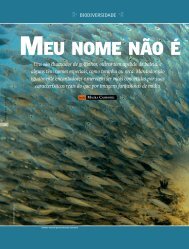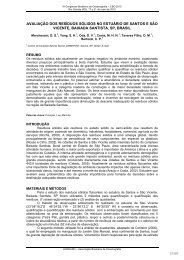view pdf - Seas At Risk
view pdf - Seas At Risk
view pdf - Seas At Risk
- No tags were found...
Create successful ePaper yourself
Turn your PDF publications into a flip-book with our unique Google optimized e-Paper software.
HÜPPOP, O., S. GARTHE, E. HARTWIG & U. WALTER (1994): Fischerei und Schiffsverkehr: Vorteil oderProblem für See- und Küstenvögel? - In: LOZAN, J., E. RACHOR, K. REISE, H. V. WESTERNHAGEN & W.LENZ (Hrsg.): Warnsignale aus dem Wattenmeer. Blackwell Wissenschafts-Verlag: 278-285.LIEDTKE, G. & E. HARTWIG (1990): Untersuchungen zur Müllbelastung der Insel Scharhörn 1989. -Seevögel 11/1: 8 - 12.NASSAUER, G. (1981): Untersuchungen zur Müllbelastung von Stränden der deutschenNordseeküste. - Seevögel 2/3: 53 - 57.NIEDERNOSTHEIDE, N. & E. HARTWIG (1998): Die Müllbelastung der Insel Scharhörn 1991. -Seevögel 19/3: 89-91.SCHNEIDER, U. (1991): Baßtölpel - Opfer der Meeresverschmutzung - Seevögel 12/4: (42).SCHREY, E. & G. VAUK (1987): Records of entangled Gannets (Sula bassana) at Helgoland,German Bight. - Mar. Pollut. Bull. 18/6 B: 350-352.SCHREY, E. & K. GROSCH (1990): Garbage pollution by shipping in the seabird-reserve Oehe-Schleimünde (German Baltic Sea). - Baltic Birds 5: 127 - 131.SCHREY, E. (1987): Untersuchungen zur Belastung der Deutschen Bucht durch Schiffsmüll. - In:Vauk, G., G. DAHLMANN, E. HARTWIG, J.C. RANGER, B.REINEKING, E. SCHREY & E. VAUK-HENTZELT: Ölopfererfassung an der deutschen Nordseeküste undErgebnisse der Ölanalysen sowie Untersuchungen zur Belastung der Deutschen Bucht durchSchiffsmüll. Umweltbundesamt-Texte 29/87: 79 - 152.UMWELTBUNDESAMT (1990): Sachstandsbericht „Schiffsmüll“. - Umweltbundesamt (UBA), Berlin,Bericht III 3.1-20 554/1: 1 - 18.VAUK, G. & E. SCHREY (1987): Litter pollution from ships in the German Bight. - Mar. Polut. Bull. 18:350-352.VAUK, G. & E. SCHREY (1987): Vermüllung der Nordsee. - In: Umweltvorsorge Nordsee;Niedersächs. Umweltministerium: 67-73.VAUK, G. & E. SCHREY (1990): Animals as litter victims at the German North Sea coast. - NOAA-TM-NMFS-SWFSC-154: 1193.Abstract: The OSPAR Pilot Project on Monitoring Marine Beach ran from 2000 to 2006. Theresults of the project provide a very good over<strong>view</strong> of marine litter pollution of the north-eastern<strong>At</strong>lantic. The results of the project demonstrate that total litter pollution levels in the OSPAR regionas a whole have remained stable at a high level during the project period 2000-2006.Significant increases or decreases in litter levels were not found at the regional level; however,small non-significant increases in the total amount of litter were recorded for the Southern NorthSea and the Iberian Sea regions from 2003 onwards.The analysis of the occurrence of litter items which function as indicators for different sources oflitter pollution, indicate that litter pollution originating from fisheries and aquaculture activitiesincreased significantly in the north-eastern <strong>At</strong>lantic in the project period. The analysis of theoccurrence of indicator items for other sources (”non-operational litter from shipping, fisheries andoffshore installations”/“operational litter from shipping and offshore installations”/”sanitary andsewage”/”tourism and recreation”) did not detect any trends over the project period.With the exception of a significant decrease in the number of large litter items on the 1 km surveysites, no reduction in the number of litter items found on beaches was found in the period 2000-2006.The proportion of plastic litter items in the total amount of litter found on beaches in the OSPAR-Region is very high, although the disposal of plastic litter from ships has been prohibited worldwidesince 1988. Three quarters of the litter items registered during the project were made of plastic.The proportion of plastic litter items in the total amount of all items found on the survey beachesincreased significantly during the project period from 68% in 2001 to 78% in 2006.118


